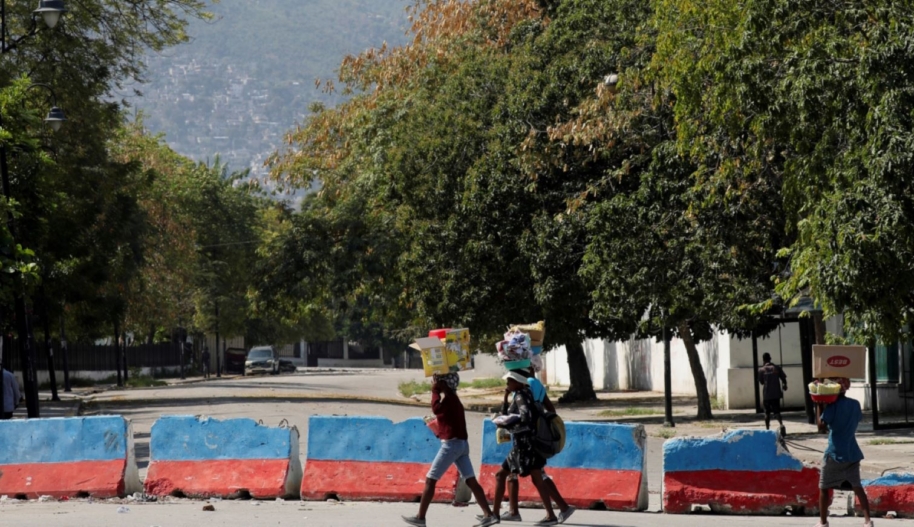Following the spiral of violence that erupted after armed gangs took control of the capital, Port-au-Prince, and other areas of Haiti in an attempt to force the resignation of prime minister Ariel Henry, Amnesty International expresses its concern at the reported atrocities, and urges the international community to address the situation in the country from a human rights perspective.
“This crisis is the result of decades of political instability, extreme poverty, natural disasters, the weakening of state institutions and the lack of real engagement from the international community, which have left the population vulnerable to violence. Military solutions and external interventions have failed to address the root causes of the crisis and, far from leading to sustainable stability, they have left a lasting legacy of human rights violations and impunity,” said Ana Piquer, Americas director at Amnesty International.
“The scenes of violence that this crisis has left us with are horrifying. The criminal gangs that are spreading terror must know that the gravity of their actions brings with it responsibility and that they can be prosecuted for crimes under international law and serious violations of human rights. The suffering of so many people cannot go unpunished.”
Haiti in crisis since 2021
Haiti has been plunged into a serious humanitarian, political and security crisis following the assassination of president Jovenel Moïse in 2021, and the subsequent strengthening of criminal gangs that now dominate a significant part of the territory and have access to key infrastructures, such as ports and airports. In early March, one of these gangs orchestrated the escape of more than 3,600 prison inmates and unleashed a wave of terror in several areas of the country, leading to the resignation of prime minister Ariel Henry. The recent escalation of violence has reached alarming levels, with reports of dozens of deaths, kidnappings, sexual violence against women and girls, and the forced displacement of more than 35,000 people since the beginning of 2024..
The international community must provide immediate humanitarian assistance to alleviate the suffering of those who have been displaced and affected by the violence
Ana Piquer, Americas director at Amnesty International
Amnesty International strongly condemns the violence that has been unleashed and stresses the importance of addressing the crisis from a human rights perspective, with a non-racist and gender-sensitive approach, relying on the leadership of Haitian society to find possible solutions and to prevent any actions that could further harm the population.
Amnesty International recalls that armed non-state actors who act as de facto authorities, with control over territories and populations as well as organizational capacity, also have human rights obligations. The organization calls on the international community to monitor and carefully document possible crimes under international law and human rights violations being committed in the country, in order to ensure compliance with international law and, where appropriate, to prosecute those suspected of criminal responsibility.
Keep borders open
Amnesty International once again calls on all states in the Americas, and in particular the governments of the United States and the Dominican Republic, to put an end to racist policies and practices and to ensure that Haitian nationals are not turned back at the border and have access to a fair and effective asylum procedure. States must suspend returns to Haiti, as conditions in the country are putting the lives and safety of Haitian nationals at risk.
“The international community must provide immediate humanitarian assistance to alleviate the suffering of those who have been displaced and affected by the violence. We can only start building a lasting solution for Haiti through an approach that prioritizes dialogue with civil society and key political actors, leadership by affected communities, and an international response focused on respect for human rights,” said Ana Piquer.
Top image © REUTERS/Ralph Tedy Erol













